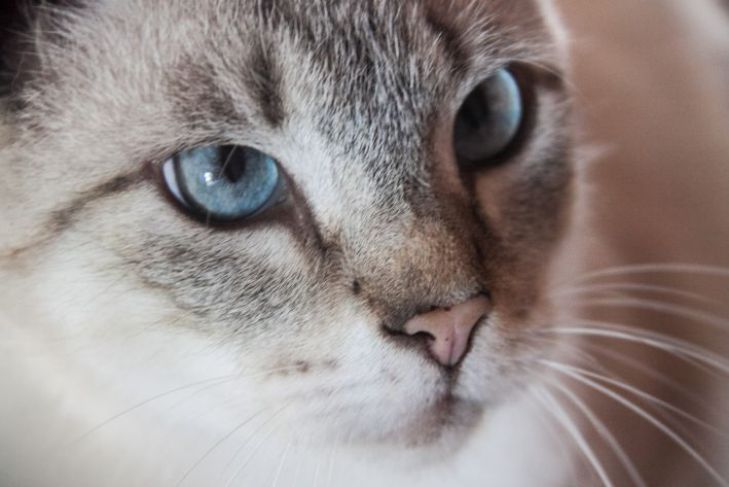Is your cat chasing a red dot along the walls, digging its claws into the carpet and knocking down everything in its path? You laugh as you film it, but behind those "cute" jumps lies a cruel truth.
A laser pointer is not a toy, but an instrument of psychological torture for cats. Imagine being teased endlessly with a piece of meat that disappears the moment you are ready to bite.
At first it's fun, but after an hour you'll feel furious and powerless. That's what a cat feels like when she can never catch the elusive beam.

Why is it so dangerous? The hunting instinct of cats requires a logical conclusion: catch the prey, bite it, taste the victory. The laser deprives them of this ending.
After dozens of unsuccessful attempts, the pet develops frustration - a state when the need is not satisfied, and stress accumulates. The cat begins to transfer aggression to others: scratches furniture, attacks the feet of the owners or bullies other animals.
Some pets become neurotic: they spend hours tracking shadows, chasing after glare, or even biting their own tails, trying to “catch” something that cannot be held.
But that's not all. Chasing the beam often ends in injuries. A cat, speeding up on the parquet, can crash into a wall, injure its paws or knock out a claw. Attempts to jump on a cabinet for a pointer lead to falls from a height, and sharp turns lead to dislocated joints. Kittens are especially at risk: their bones and ligaments are not yet strong, and excitement makes them ignore pain.
But even if the pet is not physically harmed, its psyche takes a hit. The cat stops trusting you, because you are the source of deception. It begins to avoid games or, on the contrary, becomes obsessive, demanding "prey" around the clock.
How to fix the situation if the cat is already "hooked" on the laser? You can't quit abruptly - this will cause even more stress. Start reducing the time of the game: instead of 10 minutes - 5, then 3.
Always end the session with real prey. Throw a ball or a soft mouse on the floor immediately after turning off the pointer. The cat should associate the end of the game with success: caught, bit, won. If your pet doesn't pay attention to the toy, lubricate it with catnip or hide a treat inside.
What can you use instead of a pointer? The ideal option is toys on a stick with feathers, fur or bells. They imitate the movement of prey, but allow the cat to grab it.
Another option is interactive puzzles. For example, a ball with holes in it, inside which a treat rolls. The cat will roll it for hours, trying to get the food, and will forget about the laser.
If your pet likes to track, arrange a "hunt" at home: hide treats in paper bags, boxes or under the sofa. Place "evidence" in new places every day - this will develop a sense of smell and logic.
But what if your cat refuses to play with anything other than a laser? Perhaps its instincts are skewed. Reconnect with nature: buy toys that squeak like mice or rustle like bird wings. Put a sparrow feeder by the window - watching real prey will awaken a healthy hunting passion.
And also play with the cat in the dark: turn off the light and move the flashlight along the walls. The beam will "run away", but at the end of the session, point it at the toy so that the cat finally "catch" it.
Important: Never point the beam at the cat or its eyes. Even a weak laser can damage the retina, especially in kittens. And don’t use the pointer for “punishment” — for example, to distract the cat from the sofa. This will increase its anxiety and desire to attack.
The worst case scenario is that the cat begins to associate the laser with food. Some pets refuse food after playing. This leads to exhaustion and illness. If you notice such a problem, immediately contact a zoopsychologist.
Remember: cats are not robots. Their brains need a real hunt, not an endless chase after a ghost. Give your pet the joy of victory, and he will reciprocate your trust.
And if you really want to laugh at crazy jumps, buy an automatic toy with a mouse. Let the cat chase it while you shoot a video. But never be the one who turns the life of a pet into an endless quest without a reward.
